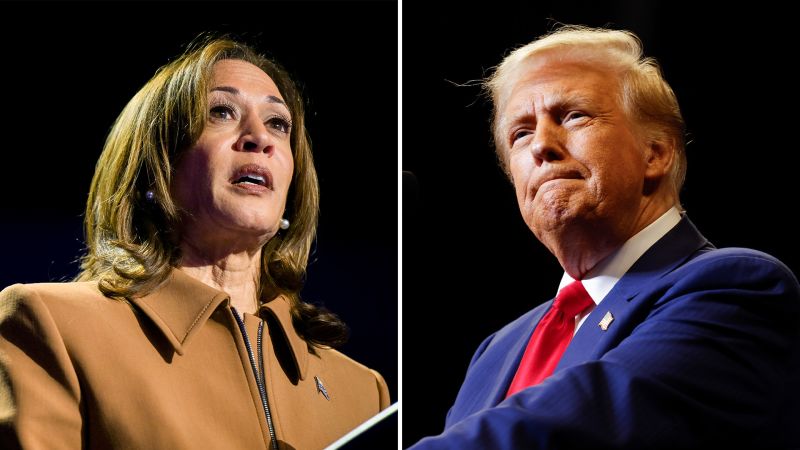The Immigration Debate: Trump vs. Harris
As the 2024 presidential campaign heats up, immigration and border security have emerged as pivotal issues, with former President Donald Trump and Vice President Kamala Harris taking distinctly different approaches. Trump has made immigration a cornerstone of his campaign, leveraging it to rally support among his base, while Harris has sought to counter his narrative and defend her record. This article delves into their respective positions and promises regarding immigration, highlighting the contrasting strategies they propose.
Trump’s Hardline Stance
Donald Trump has consistently positioned himself as a staunch advocate for strict immigration policies. His campaign rhetoric emphasizes a return to the hardline measures that characterized his presidency. Earlier this year, he successfully pressured Republican lawmakers to reject a bipartisan border deal, showcasing his influence within the party and his commitment to a tough stance on immigration.
In a January op-ed, Trump outlined his intentions to utilize the “Alien Enemies Act” to deport known or suspected gang members, drug dealers, and cartel members. This declaration underscores his focus on national security and crime as central themes in his immigration policy. He further elaborated on his plans to shift significant portions of federal law enforcement resources toward immigration enforcement, including agencies like the DEA, ATF, FBI, and DHS. This proposal indicates a comprehensive approach to immigration that seeks to integrate various federal resources into a unified enforcement strategy.
In a video posted on Truth Social, Trump promised to execute “the largest domestic deportation operation in American history,” signaling his intent to take aggressive action against undocumented immigrants. His rhetoric has evolved to include new proposals, such as granting green cards to foreign nationals who graduate from U.S. colleges, a notable shift from his previous stance of curbing both legal and illegal immigration.
Following the outbreak of the Israel-Hamas conflict, Trump also pledged to terminate visas for individuals he deemed “Hamas sympathizers,” further emphasizing his focus on national security in the context of immigration.
Harris’s Diplomatic Approach
In contrast, Vice President Kamala Harris has taken a more diplomatic approach to immigration, focusing on long-term solutions rather than immediate enforcement. Tasked by President Joe Biden in 2021 with overseeing diplomatic efforts in Central America, Harris has aimed to address the root causes of migration, such as poverty and violence, through international cooperation and investment.
Harris has faced criticism from Trump and other Republicans for her perceived inaction at the border. In response, she has highlighted her support for increasing the number of Border Patrol agents and has criticized Trump’s role in derailing bipartisan immigration reform efforts that included robust border security measures. Her campaign has emphasized the need for comprehensive immigration reform that balances security with humanitarian considerations.
In June, the Biden administration announced a crackdown on asylum claims, a policy that Harris’s campaign manager indicated would continue under a Harris presidency. This move reflects a commitment to reducing border crossings while still addressing the complexities of immigration.
Harris has also sought to engage the private sector in her immigration strategy. By establishing the Partnership for Central America, she has worked to facilitate investments aimed at improving conditions in Central American countries, thereby addressing some of the factors driving migration. While experts acknowledge her success in securing private-sector investments, they caution about the long-term sustainability of these initiatives.
The Political Landscape
As the election approaches, both candidates are keenly aware of the political implications of their immigration policies. Trump’s hardline stance resonates with a significant portion of the Republican base, who view immigration as a critical issue of national security and sovereignty. His ability to mobilize support around this issue has proven effective in previous campaigns and continues to shape the Republican narrative.
On the other hand, Harris’s approach seeks to balance enforcement with compassion, aiming to appeal to a broader electorate that includes moderates and progressives. Her focus on addressing root causes and engaging with international partners reflects a belief in comprehensive reform rather than punitive measures alone.
As the debate over immigration intensifies, both candidates will likely continue to refine their messages and strategies, seeking to capture the attention and support of voters who view this issue as a defining factor in the upcoming election. The stark contrast between Trump’s aggressive enforcement tactics and Harris’s diplomatic efforts underscores the complexities of immigration policy in the United States and the divergent paths that each candidate proposes for the future.
